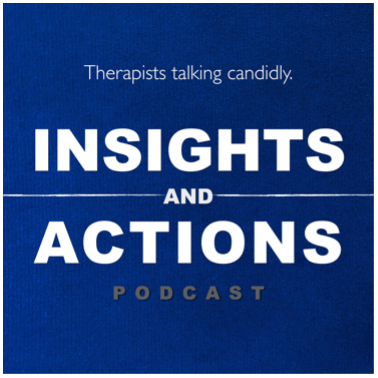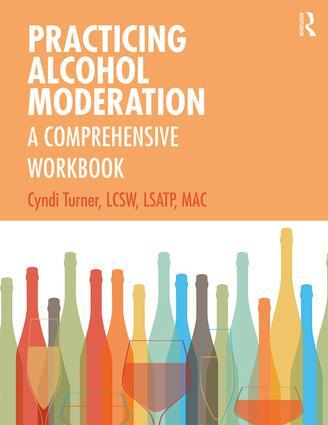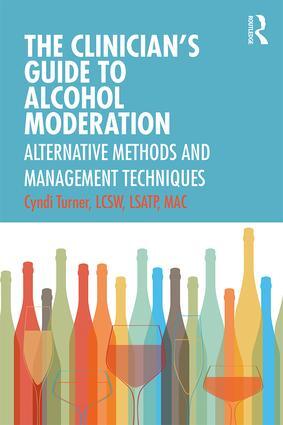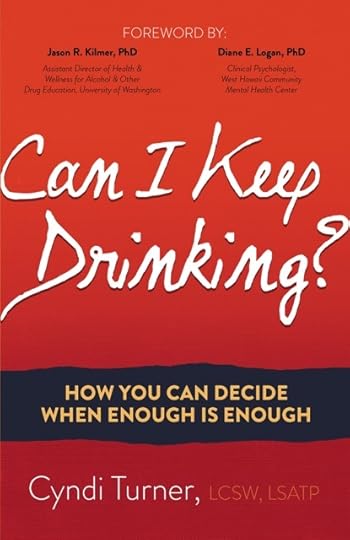Cyndi Turner's Blog
September 25, 2025
Is therapy needed? Tools to try now. (and what is gained from symptoms?)
The latest episode of the Insights & Actions podcast is now available! In this episode, Craig James, LCSW, LSATP, MAC, Matt Christian, LCSW, and Johnny Pierce, PsyD pose the question “Is therapy what’s needed for you now?”
Expect to hear:When therapy might not be neededPowerful tools you can use nowTherapy and datingPowerful questions to ask yourself to shift your perspective… and much more!
Have you ever wanted to hear what therapists really talk about when they’re out of session? The Insights & Actions podcast allows you to do just that. Insights & Actions are candid conversations with Insight Into Action Therapy and Insight Recovery Centers’ clinical team.
Insights & Actions can be found on YouTube, Spotify, Apple podcasts, Amazon music, and Audible.
If you would like a free consultation with a free consultation with a therapist at Insight Into Action Therapy, contact us: 703-646-7664





The post Is therapy needed? Tools to try now. (and what is gained from symptoms?) appeared first on Insight Into Action Therapy.
August 26, 2025
“Lawyer Meets Therapists: Personal Stories of Mental Health and the Criminal Justice System”
The latest episode of the Insights & Actions podcast is now available! We sit down with defense attorney Jeff Mangino for a powerful, real-world conversation about the intersection of mental health, therapy, and the criminal justice system.
Jeff opens up about his personal experiences with therapy, how life events like divorce and family struggles shaped his perspective, and why he believes therapy is crucial — not just for his clients, but for himself.
Insights & Actions can be found on YouTube, Spotify, Apple podcasts, Amazon music, and Audible. Click the icons below to watch and listen!





The post “Lawyer Meets Therapists: Personal Stories of Mental Health and the Criminal Justice System” appeared first on Insight Into Action Therapy.
“Are you at war with yourself? Overcoming your childhood, projection, and taking back your life”
The latest episode of the Insights & Actions podcast is now available! In this episode, Craig James, LCSW, LSATP, MAC, Matt Christian, LCSW, and Johnny Pierce, PsyD discuss issues related to personal responsibility, breaking patterns that developed in childhood, and the problem with coping skills.
Expect to hear:Personal storiesHow we project and blame othersStoicism and buddhismAllowing kids to failCourage…and much more!
Insights & Actions can be found on YouTube, Spotify, Apple podcasts, Amazon music, and Audible. Click the links below to watch and listen!
If you would like a free consultation with a free consultation with a therapist at Insight Into Action Therapy, contact us: 703-646-7664





The post “Are you at war with yourself? Overcoming your childhood, projection, and taking back your life” appeared first on Insight Into Action Therapy.
April 14, 2025
What Can Trigger an Anxiety Attack?
Anxiety attacks can feel overwhelming, leaving you uncertain about what’s happening and how to cope. For those who are new to these experiences, understanding what triggers an anxiety attack is an essential first step toward managing symptoms and finding relief. Anxiety attacks often stem from various triggers, and the signs may differ from one person to the next. Identifying an anxiety attack can be confusing. Once you can do this, however, it becomes easier to get help managing anxiety symptoms.
7 Common Triggers for AnxietyLet’s outline common triggers for anxiety attacks so you can recognize potential causes and know when it’s time to reach out for support:
1. Stressful SituationsBig or small, stressful moments can be the leading cause of anxiety attacks for many people.
Meeting tight work deadlines or facing a packed scheduleFinancial strain, such as managing bills or unexpected expensesRelationship conflicts like arguments with loved ones or friendsAcademic pressure, such as studying for an exam or giving a presentationWhen stress builds without an outlet, it can overwhelm your emotional and physical balance, leading to sudden anxiety symptoms like racing thoughts or difficulty breathing.
2. Health ConcernsMedical challenges, whether physical or mental, can play a significant role in triggering anxiety.
Underlying conditions like chronic illness, heart issues, or hormonal imbalancesFear of medical procedures or doctor visitsExperiencing side effects from new medicationsSometimes, even health-related uncertainty can amplify feelings of worry, leaving you more prone to anxiety episodes.
3. Traumatic ExperiencesTrauma, whether recent or in the past, can create lingering emotional effects that may result in anxiety attacks.
Flashbacks or vivid memories of distressing eventsExposure to reminders of the trauma, like certain sounds, smells, or placesSudden feelings of vulnerability or loss of controlIf unresolved, trauma can keep your nervous system in a heightened state that contributes to recurring anxiety symptoms.
4. Social PressuresSocial interactions can often feel intimidating, especially if you struggle with social anxiety or self-doubt.
Preparing to speak in front of a crowd or meeting new peopleFear of being judged or criticized in social settingsAttending large gatherings where you feel lost or overwhelmedThis environment may cause physical symptoms such as sweating, nausea, or rapid heartbeats, leaving you feeling panicked.
5. Lack of SleepConsistently poor sleep can weaken your resilience against anxiety triggers, making you more susceptible.
Skipping sleep due to busy schedules or insomniaWaking up often during the night or struggling with nightmaresFeeling too fatigued to concentrate on daily tasksWithout proper rest, your mind and body have little chance to recover, leaving you more vulnerable to stress and anxiety.
6. Caffeine or StimulantsWhat you consume can directly impact your anxiety levels, particularly if you overdo it on stimulants.
Drinking excessive coffee, energy drinks, or teaUsing over-the-counter medications that contain stimulantsExperiencing jitteriness that mimics anxiety symptoms like a racing heart or restlessnessAlthough caffeine often feels helpful at first, it can heighten your body’s alertness to stress, tipping you into an anxiety attack.
7. Uncertainty or Fear of the UnknownUnpredictability in life can create feelings of helplessness or dread for many people.
Worrying about future events, even if they’re far awayFeeling unprepared for unexpected changes in work or personal lifeStruggling with indecision about major life choicesAn overactive imagination about potential “what ifs” can quickly escalate into a full-on anxiety episode.
Can an Anxiety Attack Happen for No Reason?Sometimes, anxiety attacks might appear unprovoked, leaving you wondering what set them off. While it may feel like there’s no cause, this might happen because your nervous system is already on edge, reacting to subtle cues you might not even notice.
Perhaps it was a particular thought, a sound, or even just your own body reacting to internal stress. If this happens often, consulting a professional can help uncover hidden triggers or build better coping strategies.
Anxiety or Panic Attack?Understanding what is the difference between a panic attack and an anxiety attack is important when trying to make sense of symptoms. Anxiety attacks are usually triggered by specific stressors and involve gradual symptoms like worry and restlessness.
Panic attacks, on the other hand, occur more suddenly and might include intense reactions such as rapid heartbeats, chest pain, or a sense of doom. However, both can feel extremely distressing, which is why professional help can be so beneficial.
Managing Anxiety Attacks with Insight Into Action TherapyYou might wonder what is the most common trigger for anxiety, but the truth is, it’s different for everyone. Whether you’ve noticed specific patterns or feel uncertain about what triggers an anxiety attack for you, it’s important to seek support when symptoms become hard to manage. Insight Into Action Therapy can help you identify these triggers, teach effective coping strategies, and build tools for long-term relief.
Anxiety attacks don’t have to take over your life. By working with experienced professionals, you can regain control and confidence one step at a time. If you’re ready to move forward, call Insight Into Action Therapy today at 703.935.8544 or use our online contact form to start your healing process.
The post What Can Trigger an Anxiety Attack? appeared first on Insight Into Action Therapy.
April 2, 2025
Does Anxiety Ever Go Away Permanently?
If you’ve been living with anxiety for years, you may often find yourself wondering, does anxiety ever go away? It’s an understandable question, especially if you’ve tried different treatments, from therapy to medications, or if you’re simply considering seeking help but feel uncertain if it will truly make a difference.
The reality is that anxiety doesn’t have a one-size-fits-all timeline or resolution. While some people find that their symptoms lessen over time, anxiety typically doesn’t just “disappear.” However, the good news is that anxiety can absolutely be managed effectively with anxiety treatment in Fairfax, VA, allowing you to lead a fulfilling, meaningful life.
How Long Can Anxiety Stick Around?Unlike a cold that clears up in a few weeks, anxiety disorders don’t operate on a fixed schedule. For some, anxiety may spike during particularly stressful periods and then recede. For others, it might linger for months or even years. Factors such as genetics, personal experiences, and environmental stressors all play a role in how anxiety manifests and persists.
It’s important to note that anxiety is a natural part of being human. It has an evolutionary purpose, alerting us to danger and preparing us to respond. However, when anxiety becomes chronic or overwhelming, it can interfere with daily life and require professional intervention.
Can Anxiety Go Away Permanently?The idea of waking up one day and never feeling anxious again might sound appealing, but it’s not very realistic. There isn’t a “cure” for anxiety in the traditional sense. Instead, think of it as something you can learn to manage rather than eliminate entirely.
With the right treatment, whether through therapy, medication, mindfulness practices, or a combination, anxiety symptoms can significantly improve. Some people might go long stretches without acute symptoms, which can feel like the anxiety has “gone away.” However, certain situations may still trigger those feelings, making it essential to continue utilizing coping strategies.
Treatment Options for AnxietySeeking professional help is one of the most important steps you can take if anxiety has been part of your life for a long time. Anxiety treatment is highly personalized, and not every approach works the same way for every person. Here are some common options that can help you take control of your symptoms:
Therapy: Cognitive-behavioral therapy (CBT) is one of the most effective treatments for anxiety, helping you identify and change thought patterns that fuel anxious feelings. Other therapeutic approaches, such as acceptance and commitment therapy (ACT), can also be beneficial. Medication: Certain medications, like SSRIs or benzodiazepines, may be prescribed to reduce symptoms. Medication isn’t always necessary but can provide relief when anxiety is acute or persistent. Lifestyle changes: Regular exercise, a balanced diet, sufficient sleep, and mindfulness techniques like meditation can all play a significant role in reducing anxiety’s intensity. Support networks: Connecting with others who understand what you’re going through can ease feelings of isolation. Whether it’s through support groups or speaking with loved ones, sharing your experience can help.Even if you’re still wondering, can you live normal life with anxiety, the answer is yes. It may mean finding long-term tools and strategies that work for you, but it’s very possible to achieve a life that feels balanced, meaningful, and joyful again.
What if Anxiety Doesn’t Go Away?If you’ve tried to “beat” your anxiety on your own and found yourself thinking, how can I finally beat my anxiety? it may be time to reframe your expectations. Anxiety might not disappear, but it doesn’t have to control you either.
Managing anxiety is about finding the combination of supports that work for you. For those with long-standing anxiety disorders, professional guidance is often necessary to develop tailored solutions.
Seek Help with Insight Into Action TherapyInsight Into Action Therapy understands that anxiety can feel overwhelming, especially when it’s been a part of your life for a long time. While the question, does anxiety ever go away, doesn’t have a simple answer, we can help you explore effective treatment options to reduce its impact on your life. Our experienced therapists provide compassionate, customized care to address your unique needs. If you’re ready to take the next step toward managing your anxiety, reach out to us today.
Call us today at 703.935.8544 or use our convenient online contact form. You don’t have to face anxiety alone. Together, we can work toward a future where you feel more in control, less burdened by your symptoms, and empowered to live the life you deserve.
The post Does Anxiety Ever Go Away Permanently? appeared first on Insight Into Action Therapy.
March 17, 2025
“Can I Keep Drinking? Alcohol Moderation Expert Cyndi Turner”
The latest episode of the Insights & Actions podcast is now available! Insight Into Action Therapy co-founder and alcohol moderation expert Cyndi Turner, LCSW, LSATP, MAC talks about the controversial topic of alcohol moderation. Ready to move past the binary of “alcoholic” or “not alcoholic?”
In this episode, expect to learn:
How alcohol moderation worksHow to determine if you are a good candidate for alcohol moderationHow research into alcohol moderation was suppressedCommon myths about alcohol moderation…and much more!
Insights & Actions can be found on YouTube, Spotify, Apple podcasts, Amazon music, and Audible. Click the icons below to watch and listen!





Take the alcohol moderation assessment.
Purchase Cyndi’s books (click the book below to purchase on Amazon!)



If you would like a free consultation with a therapist at Insight Into Action Therapy, please contact us!

The post “Can I Keep Drinking? Alcohol Moderation Expert Cyndi Turner” appeared first on Insight Into Action Therapy.
March 10, 2025
Can a Psychiatrist Help with Anxiety?
Anxiety can be overwhelming, affecting daily life, work, and relationships. Many people wonder: Can a psychiatrist help with anxiety? The short answer is yes. Psychiatrists specialize in diagnosing and treating anxiety, providing tailored care to help individuals regain control and find relief.
If you’re seeking support, see Insight Into Action Therapy’s anxiety treatment options to explore effective solutions.
How Do Psychiatrists Help with Anxiety?Psychiatrists are medical professionals trained to assess and treat anxiety using a combination of approaches. Unlike other types of therapy providers, psychiatrists can diagnose anxiety, prescribe medications when appropriate, and offer therapeutic techniques to help individuals manage their symptoms.
Some key ways psychiatrists help with anxiety include:
Comprehensive evaluation – Psychiatrists assess medical history, symptoms, and lifestyle factors to create a personalized treatment plan. Therapeutic interventions – Treatment may include cognitive-behavioral therapy (CBT), acceptance and commitment therapy (ACT), and other evidence-based approaches. Medication management – If necessary, psychiatrists can prescribe medications to help regulate anxiety symptoms. Ongoing support and adjustments – Psychiatry involves continuous monitoring and adjusting treatment strategies based on progress and individual needs. Does Therapy Help with Anxiety?Therapy plays a crucial role in anxiety treatment, often working alongside psychiatric care. Many individuals benefit from a combination of therapy and medication management, but therapy alone can also be highly effective.
Common therapy approaches include:
Cognitive-behavioral therapy – Helps reframe anxious thoughts and develop coping strategiesExposure therapy – Gradual exposure to fears in a controlled environment to reduce avoidance behaviorsMindfulness-based therapy – Focuses on relaxation techniques and being present to ease anxiety symptomsIf you’re wondering, “Does therapy help with anxiety?” the answer is a resounding yes. Many individuals find that therapy provides lasting strategies for managing anxiety and improving overall well-being.
When Is It Time to See a Psychiatrist for Anxiety?While mild anxiety can sometimes be managed with lifestyle adjustments, professional support may be necessary if anxiety starts interfering with daily life. Consider seeing a psychiatrist if you experience:
Persistent worry that feels uncontrollable Panic attacks or intense physical symptoms like rapid heartbeat, dizziness, or sweating Difficulty sleeping due to anxious thoughts Avoidance of social or professional situations due to fear or nervousness Anxiety that affects relationships, work, or daily activitiesIf any of these symptoms resonate with you, scheduling an evaluation with a psychiatrist could be the first step toward relief.
Benefits of Seeing a Psychiatrist for AnxietyTo immediately capture attention, here’s a quick breakdown of the benefits of psychiatric treatment for anxiety:
Benefit Description Personalized Treatment Tailored approaches based on individual needs Comprehensive Care Access to therapy, medication, and holistic support Medical Expertise Psychiatrists can diagnose and prescribe treatment as needed Symptom Management Learn techniques to reduce and control anxiety symptoms Long-Term Support Continuous care to track progress and make adjustments Frequently Asked Questions Can a psychiatrist help with anxiety without medication?Yes, psychiatrists can recommend non-medication approaches such as therapy, mindfulness, and lifestyle changes. Medication is only prescribed when necessary and in collaboration with the client’s preferences.
How do psychiatrists help with anxiety compared to therapists?Psychiatrists can diagnose anxiety, prescribe medications, and provide therapy. Therapists primarily focus on counseling techniques and behavioral strategies to manage anxiety. Many individuals benefit from a combination of both.
What should I expect during my first psychiatric appointment for anxiety?During the first visit, a psychiatrist will conduct a thorough evaluation, discuss symptoms, and develop a personalized treatment plan. This may include therapy recommendations, lifestyle changes, or medication if appropriate.
Get Help for Anxiety at Insight Into Action TherapyIf you’re struggling with anxiety, professional help is available. Insight Into Action Therapy offers comprehensive psychiatric care, therapy, and medication management to help individuals find relief and regain control. Our experienced team provides compassionate, personalized care designed to meet your unique needs.
Give us a call at 703.935.8544 today to schedule an appointment and take the first step toward managing your anxiety. For more details, visit our website to learn about the range of anxiety treatment services we offer. Remember, you don’t have to face anxiety on your own—let us support you on your journey toward a calmer and more fulfilling life.
The post Can a Psychiatrist Help with Anxiety? appeared first on Insight Into Action Therapy.
February 20, 2025
The Role of Therapy in Dual Diagnosis Recovery
Navigating life with both substance use challenges and emotional struggles can feel overwhelming. When these issues occur together, they are known as a dual diagnosis, and effective care must address both simultaneously. For those seeking treatment in Virginia, a dual diagnosis treatment center in Ashburn, VA, can help people address both mental health and substance use disorders simultaneously.
Understanding Dual Diagnosis TreatmentAddiction and mental health concerns often interact in complex ways—sometimes, one develops as a way to cope with the other. In other cases, they arise independently but reinforce each other. Effective treatment requires a tailored approach that addresses both simultaneously rather than treating them as separate issues.
It is a misconception that people must achieve sobriety before receiving therapy for emotional well-being. In fact, treating both at the same time can lead to better outcomes.
The Importance of Therapy in Dual Diagnosis TreatmentTherapy is a cornerstone of dual diagnosis treatment, providing people with the tools they need to navigate both their recovery and emotional well-being. Through therapy, you or a loved one can:
Identify triggers that contribute to substance use and emotional distressDevelop healthier coping mechanismsImprove communication and relationshipsAddress underlying traumaStrengthen resilience and self-awarenessBecause every person’s experience with dual diagnosis is unique, therapy must be personalized to fit individual needs. A combination of therapeutic approaches ensures comprehensive care.
Types of Therapy for Dual DiagnosisThere are many types of therapy that can support individuals on their recovery journey with dual diagnosis. Here are some of the most effective and compassionate approaches:
1. Acceptance and Commitment Therapy (ACT)ACT gently encourages people to embrace their thoughts and feelings without judgment while committing to behaviors that reflect their values. This supportive approach is especially helpful for those navigating anxiety, depression, or other challenges alongside substance use.
2. Cognitive-Behavioral Therapy (CBT)CBT is a trusted and effective therapy that helps participants identify and change harmful thought patterns. By learning healthier ways to think and respond, you can feel more in control of your choices, reduce emotional struggles, and lower the risk of relapse.
3. Motivational Interviewing (MI)For those who may feel unsure about making changes, MI provides a safe space to explore motivations for recovery. This empowering approach encourages self-reflection and helps people take meaningful steps toward a brighter future.
4. Trauma TherapyPast trauma can deeply affect emotional well-being and substance use. Trauma-focused therapy offers a safe and nurturing environment for you to process your experiences, helping to heal old wounds and reduce their impact on daily life.
5. Family TherapyDual diagnosis affects not only the person in recovery but also their loved ones. Family therapy helps rebuild trust, improve communication, and strengthen bonds. With a united support system, people in recovery are better equipped for long-term success and healing.
Benefits of Dual Diagnosis Treatment CentersSeeking help from a dual diagnosis treatment center ensures individuals receive specialized care tailored to their needs. These centers provide:
Integrated care – Addressing both substance use and emotional health together leads to better outcomes.Experienced professionals – Therapists trained in dual diagnosis understand the complexities of co-occurring conditions.A supportive environment – Recovery is easier when people feel understood, validated, and supported.Compassionate, evidence-based care can help you or someone you love achieve meaningful and lasting recovery.
Call Today to Reach Our Dual Diagnosis Treatment Center in Ashburn, VAIf you or a loved one is struggling with both substance use and emotional challenges, you don’t have to face it alone. Therapy for dual diagnosis in Ashburn, VA, offers the support and tools needed for lasting recovery.
Contact Insight Into Action Therapy today at 703.935.8544 or online to learn more about our dual diagnosis treatment center in Ashburn, VA, and take the first step toward a healthier, more fulfilling life.
The post The Role of Therapy in Dual Diagnosis Recovery appeared first on Insight Into Action Therapy.
February 6, 2025
How to Know if You Need Therapy: Signs it’s Time to Seek Help
Life is full of challenges, and while some can be navigated with the support of loved ones, others may feel overwhelming. If you’ve been struggling with emotions, behaviors, or situations that seem unmanageable, you might be wondering if professional support could help. Whether you’re local to Virginia or wish to travel for treatment, seeking mental health counseling in Ashburn, VA, can be a valuable step toward understanding yourself better, managing stress, and improving your well-being. But how do you know when it’s time to reach out?
7 Signs You Need TherapyLife can often feel overwhelming, whether due to stress, relationship challenges, grief, or simply the fast pace of daily life. Therapy provides a safe and supportive space to unpack your feelings, explore your thoughts, and gain clarity.
Here are some reasons to seek therapy and how professional guidance can help you regain balance in your life.
1. You Feel Overwhelmed by Stress or AnxietyStress is a normal part of life, but when it starts interfering with your ability to function, it may be time to seek help. If you constantly feel on edge, have trouble sleeping, or experience racing thoughts, a therapist can provide coping strategies tailored to your needs. Techniques such as acceptance and commitment therapy (ACT) or meditative therapy can help you manage stress more effectively.
2. Your Emotions Feel Uncontrollable or UnmanageableDo you find yourself frequently overwhelmed by sadness, anger, or frustration? Emotional ups and downs are normal, but when they start to affect your relationships, work, or daily life, therapy can offer relief. Whether you’re dealing with anxiety, depression, or anger management concerns, a professional can guide you toward healthier emotional regulation.
3. You’re Struggling with a Major Life TransitionBig life changes—such as a divorce, job loss, the birth of a child, or moving to a new city—can be stressful and emotionally draining. If you’re finding it difficult to adjust, therapy can help you process these changes and develop strategies to move forward with confidence.
4. Your Relationships Are SufferingIf conflicts with family members, partners, or friends seem constant, therapy may help. Relationship struggles can stem from communication issues, unresolved emotions, or deeper personal challenges. Family therapy and person-centered therapy can provide tools to improve communication, strengthen bonds, and resolve conflicts in a healthy way.
5. You’re Engaging in Unhealthy Coping MechanismsWhen stress or emotional pain becomes too much, some individuals turn to substance use, overeating, or other behaviors as a way to cope. If you find yourself relying on alcohol, drugs, or other unhealthy habits to manage your emotions, seeking professional support can help you explore healthier coping strategies.
6. You’ve Experienced Trauma and Haven’t Fully Processed ItTrauma can affect your thoughts, emotions, and behaviors in ways you may not even realize. Whether you’ve experienced a recent traumatic event or are dealing with unresolved trauma from the past, therapy can help you heal. PTSD treatment, trauma therapy, and community reinforcement approaches (CRAFT) can support individuals in processing and overcoming trauma in a safe and constructive way.
7. You Feel Stuck or Unfulfilled in LifeIf you’re feeling unmotivated, disconnected, or unsure about your life’s direction, therapy can help you explore what’s holding you back. Sometimes, unresolved emotions, negative thought patterns, or past experiences can create roadblocks that prevent you from thriving. Working with a therapist can help you gain clarity, set goals, and develop a sense of purpose.
Get in Touch with Insight Into Action Therapy for Mental Health CounselingYou don’t have to navigate life’s challenges alone. If any of these signs you should see a therapist resonate with you, contact Insight Into Action Therapy today at 703.935.8544 or online. We can support your journey toward healing and self-discovery.
The post How to Know if You Need Therapy: Signs it’s Time to Seek Help appeared first on Insight Into Action Therapy.
January 15, 2025
3 Benefits of Couples Therapy
Relationships need effort, communication, and understanding to flourish. When challenges arise, couples therapy provides a safe and supportive space to navigate issues and strengthen your bond.
If you’re considering couples therapy in Ashburn, VA, you’re already taking a positive step toward improving your relationship. Exploring the key benefits of couples therapy can help you and your partner create a stronger, healthier connection.
What Are the Benefits of Couples Counseling?Couples therapy can provide numerous benefits for couples, including:
1. Improved Communication SkillsEffective communication is the cornerstone of any healthy relationship. However, misunderstandings and miscommunications can lead to frustration, resentment, and conflict. One of the significant benefits of couples counseling is its focus on fostering open and honest communication between partners.
Couples therapy may assist with the following:
Identifying communication patterns – A skilled therapist can help you and your partner recognize unhelpful communication habits, such as interrupting, avoiding difficult topics, or becoming defensive. Learning active listening – Couples therapy teaches you how to truly hear each other’s perspectives without judgment or interruption, creating a space for mutual understanding. Expressing needs clearly – Therapy provides tools to help you articulate your feelings and needs in a constructive and respectful manner, reducing the likelihood of misunderstandings.Couples therapy in Ashburn, VA, can improve communication and help you and your partner navigate challenges more effectively, building a stronger foundation for your relationship.
2. Strengthened Emotional ConnectionOver time, life’s stresses and routines can cause partners to feel disconnected from one another. Rebuilding emotional intimacy is one of the primary benefits of couples therapy, as it focuses on fostering a deeper connection between you and your partner.
Couples therapy can help by:
Reconnecting through vulnerability – Therapy encourages you to share your thoughts, fears, and feelings openly, allowing you to rebuild trust and emotional closeness. Understanding each other’s perspectives – A therapist can guide you in exploring each other’s experiences and viewpoints, helping you see your partner in a new light. Creating shared goals – Working together to set goals for your relationship can reignite a sense of partnership and mutual support.Couples counseling nurtures your emotional connection, providing a space for you to reconnect and rediscover the bond that brought you together.
3. Conflict Resolution and Problem-SolvingDisagreements are a natural part of any relationship, but unresolved conflicts can lead to long-term damage. One of the key pros of couples counseling is its ability to equip you with tools to resolve conflicts constructively and collaboratively.
Couples therapy can help people in relationships with:
Addressing the root causes – Therapists help couples identify the underlying issues behind recurring conflicts, allowing you to address the real problem rather than just the symptoms. Developing healthy conflict resolution skills – Therapy teaches techniques for managing disagreements without resorting to blame, shouting, or avoidance. Building resilience as a team – By working through challenges together in therapy, couples learn to tackle future problems more effectively as a team.Whether you’re dealing with small disagreements or more significant challenges, couples therapy in Ashburn, VA, can help you approach conflicts with empathy, understanding, and solutions.
Why Choose Couples Therapy in Ashburn, VA?For couples in Northern Virginia, Insight Into Action Therapy offers a compassionate and effective approach to improving relationships. Couples counseling benefits extend beyond resolving conflicts to fostering a deeper connection, building trust, and enhancing overall satisfaction in a relationship.
At Insight Into Action Therapy, our therapists are experienced in guiding couples through various challenges, from communication difficulties to rebuilding intimacy. Our tailored approach ensures that both partners feel heard, respected, and supported throughout the process.
Call Today to Take the First Step Toward a Stronger RelationshipInvesting in your relationship through couples therapy is one of the most meaningful steps you can take. Whether you’re looking to improve communication, rebuild connections, or resolve conflicts, Insight Into Action Therapy is here to help.
Contact Insight Into Action Therapy today to learn more about the benefits of couples therapy and how we can support your journey. Visit our website or call 703.935.8544 to schedule your first session. Together, we can help you create the strong, healthy relationship you deserve.
The post 3 Benefits of Couples Therapy appeared first on Insight Into Action Therapy.



